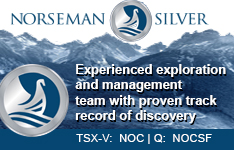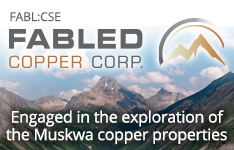Lithos Energy Ltd. (LITS:CSE)'s 100%-owned subsidiary, Aqueous Resources, has received a US$1.3 million funding award from the U.S. Department of Energy (DOE). The funding will support Aqueous' lithium processing facility in Denver, where it will conduct bench-scale tests using brine sources from Chile, Argentina, and the U.S.
Aqueous has also started the application process for up to US$30 million in additional DOE funding that was recently announced on September 6. This funding is intended to support pilot facilities and the construction of processing plants for critical minerals like lithium in the U.S.
The funding aligns with LiTHOS' previously announced plans for its Crimson Tide lithium hydroxide facility in Alabama. The facility will use innovative methods to produce battery-grade lithium hydroxide from raw continental brines. It is strategically located near major auto manufacturers like Mercedes-Benz, Hyundai, and Honda.
The DOE funding provides significant resources to advance LiTHOS' lithium processing technology and work towards establishing domestic lithium production for the electric vehicle supply chain.
Pilot Facility Term Sheet Signed
Lithos Technology LLC announced it has signed a non-binding term sheet with Sand Spirit LLC to develop, construct, own, and operate a lithium hydroxide pilot production facility in Alabama.
Lithos Technology, a wholly owned subsidiary of Lithos Energy Ltd., said its mission is to deliver sustainable lithium production for the new green economy without water-wasting evaporation ponds. Its patent-pending AcQUA™ process uses electro-pressure membranes to recover lithium chloride from aqueous sources.
"The Crimson Tide facility will be the first lithium hydroxide monohydrate production facility in the southeastern United States," said Lithos Chief Executive Officer Scott Taylor. "Fortunately, we found a phenomenal partner in Sand Spirit, who brings engineering expertise, a large complex, and the necessary environmental permits to produce LiOH-H20. We can be nimble and quickly get this facility producing LiOH- H20."
"DLE offers a potential game-changing technology for lithium supply," Goldman Sachs analysts wrote in an equity research note on April 27.
Lithium is needed for batteries in electric vehicles (EVs) and the electrification of the economy accumulates in saline groundwater. Traditional extraction methods involve those wasteful evaporation ponds, where brine can remain for more than a year before it is ready to be processed.
AcQUA™ uses an electro-pressure membrane process to optimize pre-treatment of the raw brines and rapidly concentrates lithium chloride with multiple Direct Lithium Extraction (DLE) techniques. The company said its systems are fully commercialized and operate in the field at scale, processing a feed of 10,000 barrels a day.
"DLE offers a potential game-changing technology for lithium supply," Goldman Sachs analysts wrote in an equity research note on April 27.
"The implementation of Direct Lithium Extraction (DLE) technologies has the potential to significantly increase the supply of lithium from brine projects (much like shale did for oil), nearly doubling lithium production on higher recoveries and improving project returns, though with the added bonus of offering ESG/sustainability benefits, while also widening rather than steepening the lithium cost curve," the analysts noted.
The Catalyst: EVs Need Batteries
A silvery metal with highly reactive and flammable properties, lithium is a major component of EV batteries, where it is used as a cathode and electrolyte. It's also used to strengthen alloys, as a high-temperature lubricant, and as a drug to treat bipolar disorder.
Brine makes up nearly two-thirds of lithium resources but only about 40% of production, Goldman Sachs said. Production from the Lithium Triangle (Bolivia, Chile, and Argentina) using brine evaporation has lagged over spodumene sources.
The total addressable market for the process in 2023 is about US$14 billion, the company said. It's expected to grow to US$133 billion by 2035, the company said.
"The growing adoption of hybrid and electric vehicles (EVs), high-drain portable electronics, and energy storage systems has had a huge impact on the growth of the overall market," a report by Fortune Business Insights said.
Analysts from Eight Capital also predicted that lithium market deficits will widen this decade, and the shortfalls will be driven by demand in North America.
According to Lithos, the U.S. currently only controls 1% of worldwide lithium production.
Analysts from Eight Capital also predicted that lithium market deficits will widen this decade, and the shortfalls will be driven by demand in North America.
The United States' EV penetration of 6% lags China's 26% and Europe's 20%, analysts Anoop Prihar and Alex Riazanov of Eight Capital wrote in a recent research note. But President Joe Biden's administration has committed to a target of 50% of new vehicle sales being EVs by 2030.
"We estimate North American lithium nameplate production capacity will be 262,900 LCE (million tonnes lithium carbonate) in 2026 based on projects that currently have completed a Definitive Feasibility Study (DFS)," Prihar and Riazanov wrote. "Although this is a significant increase from the current North American production capacity of 6,000 tonnes LCE, it's still more than 128,000 tonnes short of what we anticipate will be required by the battery plants. As such, we anticipate the fundamentals underlying lithium demand to remain robust."
Facility Strategically Located
The Alabama facility with Sand Spirit will include storage of raw, intermediate, and processed brines; pretreatment systems; lithium chloride concentration processing systems; DLE processing systems; and lithium chloride treatment and refining systems.
"The facility is strategically located next to the Smackover, which is the most prospective lithium-enriched brine reservoir in the U.S.," Taylor noted.
Other companies, including Exxon Mobil Corp. (XOM:NYSE) and Standard Lithium Ltd. (SLI:TSX.V; SLI:NYSE American) are actively developing Smackover lithium projects, presenting production offtake opportunities for the Crimson Tide facility.
The term sheet signed by the companies sets out preliminary terms for a joint development agreement (JDA) between Lithos and Sand Spirit. The parties will seek to negotiate within 180 days.
The facilities themselves are in Bessemer, Ala., adjacent to the city of Birmingham and only 30 miles from the University of Alabama. It's made up of three buildings that are 6,000, 7,000, and 42,000 square feet.
Aqueous is a U.S. Department of Energy fast-track grant winner and the winner of a Colorado advanced industries grant, the company said. Lithos has a fully commissioned brine processing facility in Denver and is processing brines strategic resource owners in the U.S., Argentina, and Chile.
Saving Water, Money While Increasing Output
Current brine operations destroy up to 2,500 acres of land, consume billions of gallons of water per year, produce hundreds of thousands of tons of carbon dioxide, and take up to two years to evaporate, Lithos said.
After all of that, up to 80% of the initial resource is lost in the process, the company said.
AcQUA™ reduces water use by up to 98%, according to the company, and has a 40% to 50% estimated lower CAPEX, higher lithium recovery, and a reduced physical and environmental footprint.
Operating margins are modeled at about 78%, and the company estimates the lifetime value of a customer could be more than US$100 million under licensing or sales business models.
Ownership and Share Structure
About 53% of Lithos is held by insiders and management, the company said. According to Reuters, this includes CEO Taylor with nearly 15% or 12 million shares, Independent Director Michael Westlake with 0.75% or 600,000 shares, and Independent Director Kevin McKenna with 0.05% or 40,000 shares.
According to Reuters, about 16 percent of the company is held by strategic entities. The rest is retail.
Lithos has a market cap of CA$70 million with about 80 million shares outstanding. It trades in a 52-week range of CA$1.02 and CA$0.30.
Sign up for our FREE newsletter
Important Disclosures:
- Steve Sobek wrote this article for Streetwise Reports LLC and provides services to Streetwise Reports as an employee.
- The article does not constitute investment advice. Each reader is encouraged to consult with his or her individual financial professional. By opening this page, each reader accepts and agrees to Streetwise Reports' terms of use and full legal disclaimer. This article is not a solicitation for investment. Streetwise Reports does not render general or specific investment advice and the information on Streetwise Reports should not be considered a recommendation to buy or sell any security. Streetwise Reports does not endorse or recommend the business, products, services or securities of any company mentioned on Streetwise Reports.
For additional disclosures, please click here.






































